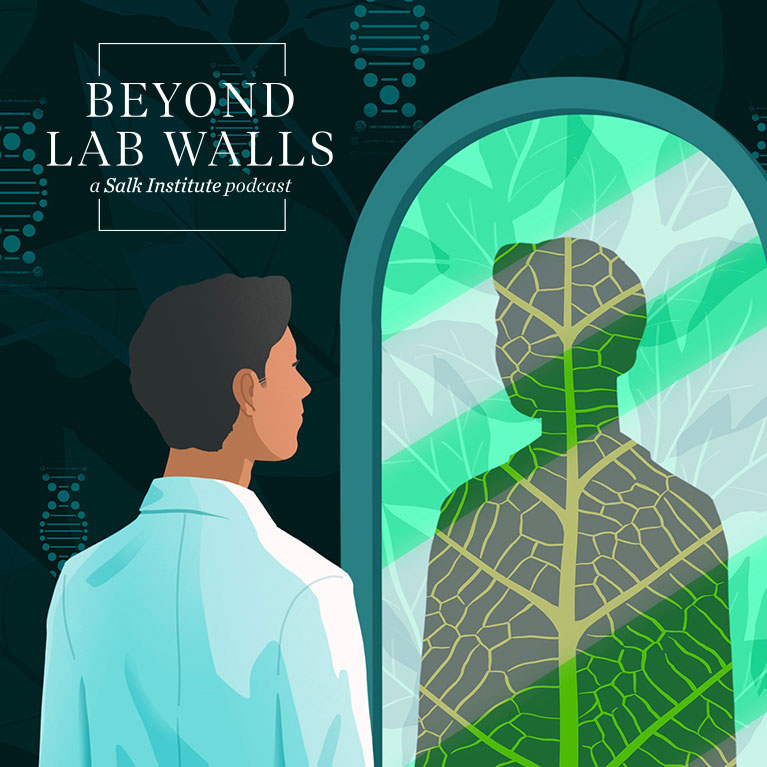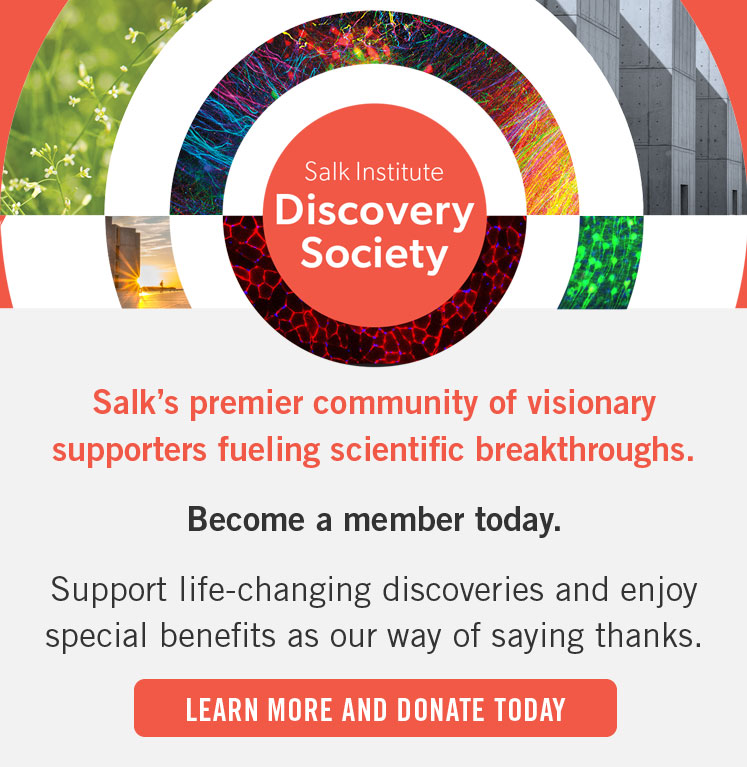Next Gen Joseph Swift Saving potatoes, one road trip at a time
Plant biologist and startup co-founder Joseph Swift had an idyllic upbringing in the suburbs of Brisbane, Australia.
“Growing up in Australia, you’re always at the beach or in the bush,” says Swift. “Nature was always front and center, so that definitely influenced me to study biology and plant biology in particular.”
Swift enjoyed frequent camping trips with his mother, brother, and geophysicist father. But having a scientist in the family didn’t sway Swift too much—he was more moved by his parents’ adventurous spirits.
“My parents, if anything, encouraged me to do whatever I wanted to do. They’re kind of wild, always traveling around and doing adventurous things. They’ve lived in Libya; they’ve lived in Papua New Guinea. That was a lesson to embrace doing something unusual, interesting, or risky.”
That lesson was put into practice when Swift was 15 and his parents decided to move overseas to Salzburg, Austria. Swift deepened his interests in both science and literature while abroad at boarding school, prompting a “toss-up between the two” come university.
Ultimately, Swift decided to enroll in biochemistry and biotechnology classes at The University of New South Wales. However, the coursework leaned heavily toward medical topics, primarily focusing on human biology rather than plant biology.
“At the molecular level, everything is wonderfully beautiful, and there are many similarities between plants and animals,” says Swift. “But once I started research at the bench, I realized that the questions that I really wanted to answer were much more in the plant biology space. To me, there were more interesting and urgent questions around sustainability and agriculture that demanded answering.”
After earning both his bachelor’s and master’s degrees, Swift moved to New York City to begin his research in plant genomics—something that, “looking back,” Swift laughs, “I don’t really know if I fully understood before getting into.”
Traditional genetics tries to understand the role of each individual gene and how it is inherited. Genomics takes a much broader view, assessing the expression, interaction, and regulation of all genes to create one cohesive narrative. By looking at a plant’s complete genetic story, patterns begin to emerge that can help explain how plants evolved, how they manage disease, or how they adapt to their environments.
As a PhD student at New York University, Swift studied how nutritional changes can affect a plant’s genome. To take this research to the next level, he moved back to the Pacific shoreline—this time to Salk Professor Joseph Ecker’s lab in San Diego.
“Salk has always been one of—if not the—best place to do plant genomics,” says Swift. “Joe Ecker and other folks here really built that field, so it was a dream to be here. It also allowed me to pursue new projects that were kind of crazy.”
“If we’re able to understand how photosynthesis evolved in certain crops. We could potentially engineer those enhanced photosynthetic properties into other crops, like rice or wheat, that may otherwise struggle in the face of environmental stressors.”
–Joseph Swift
One of those “crazy” projects explored the origins of photosynthesis—the process plants use to turn sunlight, water, and carbon dioxide into sugar. About 30 million years ago, a subset of plants evolved a more efficient way to photosynthesize, called “C4,” in hot, dry climates. Swift and Ecker, along with their colleagues at the University of Cambridge, discovered a key step in the evolution of this more efficient photosynthesis.
“If we’re able to understand how photosynthesis evolved in certain crops,” Swift explains, “we could potentially engineer those enhanced photosynthetic properties into other crops, like rice or wheat, that may otherwise struggle in the face of environmental stressors.”
Another exciting branch of Swift’s postdoctoral research explores plant plasticity. Unlike humans, plants can change the speed of their growth based on resources—a watered houseplant grows and blooms, while an un-watered houseplant stays stagnant. This adaptability is called plasticity.
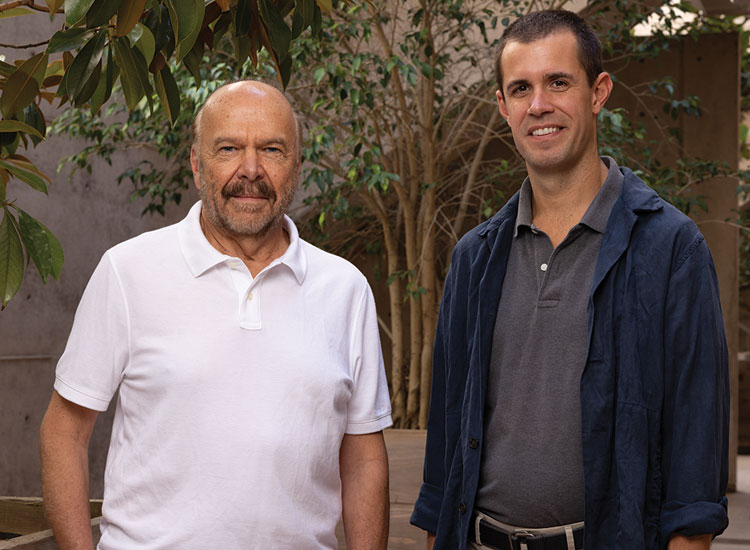
Salk Professor Joseph Ecker with Joseph Swift.
Swift and Ecker found evidence that, during a resource shortage, a young plant can initiate aging-like responses to advance to an older stage more quickly and preserve energy—a surprising and counterintuitive discovery.
“Our plasticity research is directly relevant to agriculture at large,” says Swift. “If farmers are lacking in water resources and that pause in plant growth happens, that affects yields, and ultimately what we see at the supermarket.”
Throughout his scientific career, Swift often found himself wondering how he could leverage his skill set to help farmers more directly. This motivation to apply genomic insights to agricultural practice led to Crop Diagnostix.
“My co-founders and I came together kind of serendipitously and realized that we had the collective expertise amongst ourselves to begin developing biomarker technology for plants,” says Swift.
Biomarkers are molecules that can be measured in a plant or animal to indicate a certain health status. For example, in humans, mutations in BRCA1 and BRCA2 genes serve as biomarkers for breast cancer susceptibility. Crop Diagnostix is working to develop new biomarkers in plants that would allow scientists and farmers to predict crop growth under different environmental conditions.
“I’m driving out to Arizona to potato fields to talk with growers, trying to understand what biomarkers they might benefit from, then driving back with a ton of samples in my car to analyze as quickly as possible,” says Swift. “Are they receiving enough nutrients? Is there an early-onset pathogen? These are the sorts of questions that growers really want to understand and know, so they can make decisions about fertilizers or pesticides.”
Advances in genomic technology and artificial intelligence have made Crop Diagnostix’s mission possible. Scientists can now decode genomic datasets from crops more easily than ever. In turn, farmers can more easily access this valuable information and use it to guide their farming practices in real time.
“Everyone wants more predictable and stable yields,” Swift adds, “and we’re all just trying to make those needs a reality in time.”
While he spends most of his time in the laboratory, Swift still makes time to swim, rock climb, and read literature. His schedule is also increasingly shaped by the seasons, thanks to his new connection to farmland.
“There’s this cycle every year around growing, planting, harvesting—all this effort and energy that goes into producing food and energy. It’s a huge undertaking that has happened every year since the dawn of human invention,” says Swift. “Not to get too poetic, but our interaction with plants is one of the most important and fundamental relationships we have with any organism. I can’t see how someone wouldn’t have joy in watching plants grow.”
Joseph Swift says we’re more like plants than we think
Hear about everything from the microscopic similarities between plants and humans, to what it’s like road-tripping with a car full of potatoes.
Featured Stories
 Michelle Chamberlain: Bringing together communities old and newChamberlain, whose lifelong commitment to others has shaped her journey to Salk, now serves as Salk’s vice president of External Relations, leading fundraising, communications, community engagement, foundation relations, and stewardship efforts.
Michelle Chamberlain: Bringing together communities old and newChamberlain, whose lifelong commitment to others has shaped her journey to Salk, now serves as Salk’s vice president of External Relations, leading fundraising, communications, community engagement, foundation relations, and stewardship efforts.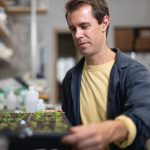 Joseph Swift: Saving potatoes, one road trip at a timeSwift, a plant biologist and startup co-founder, had an adventurous upbringing in Australia filled with natural beauty. Today, he uses plant genomics to tackle urgent questions in sustainability and agriculture.
Joseph Swift: Saving potatoes, one road trip at a timeSwift, a plant biologist and startup co-founder, had an adventurous upbringing in Australia filled with natural beauty. Today, he uses plant genomics to tackle urgent questions in sustainability and agriculture.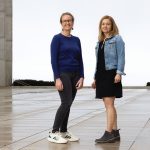 Building connections in cells, soils, and labsAssistant Professors Lena Mueller and Aga Kendrick joined the Salk Institute in January 2024 and November 2023. Less than two years later, their new labs are already celebrating their first published studies.
Building connections in cells, soils, and labsAssistant Professors Lena Mueller and Aga Kendrick joined the Salk Institute in January 2024 and November 2023. Less than two years later, their new labs are already celebrating their first published studies. Empowering future scientists and advancing healthy aging researchThe Prebys Foundation empowers future scientists, while La Mer supports a fellowship advancing healthy aging research.
Empowering future scientists and advancing healthy aging researchThe Prebys Foundation empowers future scientists, while La Mer supports a fellowship advancing healthy aging research. Community building with creativity and connections across SalkIn April, Salk’s Engagement & Wellbeing Week brought employees and trainees together for activities ranging from coffee hours to a paper airplane competition.
Community building with creativity and connections across SalkIn April, Salk’s Engagement & Wellbeing Week brought employees and trainees together for activities ranging from coffee hours to a paper airplane competition.






















































